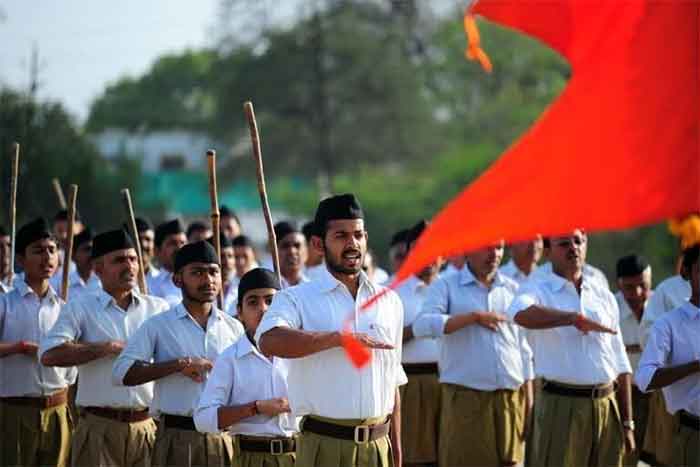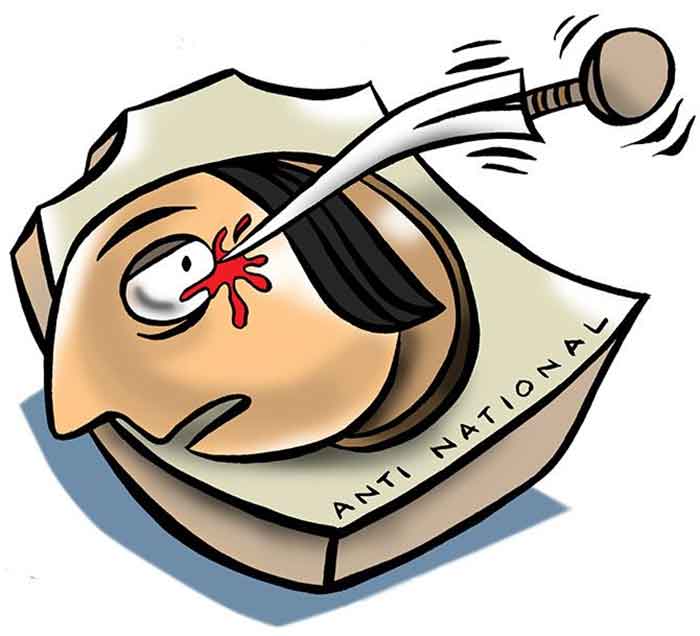
June 25, 2023 is the 48th anniversary of Emergency Declaration that lasted for 21 months. Meanwhile, addressing the 102nd episode of the monthly radio show Mann Ki Baat on June 18, 2023, on the eve of his US visit, Modi said : “India is the mother of democracy. We consider our democratic ideals as paramount, we consider our Constitution as Supreme… therefore, we can never forget June the 25th. This is the very day when Emergency was imposed on our country. It was a dark period in the history of India. Lakhs of people opposed the emergency with full might. Many books have been written on these atrocities; the punishment meted out by the police and administration. The supporters of democracy were tortured so much during that time that even today, their mind shudders.”
Certainly, Modi’s no holds barred rhetoric against Emergency and sermon on democracy call for clarification. Of course, the standard narrative on Emergency espoused by Sangh Parivar including Modi is the same as that generally upheld by the people at large over the years. On June12, 1975, the Allahabad High Court convicted Indira Gandhi of electoral malpractices and debarred her from holding any elected post. On an appeal filed by Indira on June 24, 1975, when Justice VR Krishna Iyer had been the vacation judge, the Supreme Court granted a conditional stay on High Court verdict thereby allowing her to continue as prime minister. However, she was not allowed to take part in parliamentary proceedings and draw salary as an MP, which in effect denied Indira Gandhi to exercise her role as prime minister. This was the context that prompted the dissatisfied Indira to impose emergency which was agreed upon by the President and ratified by the Cabinet and the Parliament from July to August 1975.
Thus, Emergency declaration with effect from June 25, 1975 was Indira Gandhi’s last resort to continue exercising full executive powers as prime minister. Till the withdrawal of Emergency on March 21, 1977, Indira Gandhi together with her ‘coterie’ ruled by decree, converting India into a police state imposing inhuman repression including widespread “encounter deaths” and imprisonment of communist revolutionaries, putting political opponents and journalists in jail, suspending civil and fundamental rights, and imposing censorship on media. However, in view of the loosening grip of the regime over the vast Indian society and on account of the lack of popular and societal support, the brutal and sudden Emergency of almost two years was withdrawn on March 1977, followed by declaration of General Election leading to the rout of the ruling Congress.
On the other hand, when Modi himself characterises Emergency as “dark period in the history of India”, and when many well-meaning people and even critics of Modi regime depict the latter as “undeclared Emergency”, the outcome is a depoliticisation of the whole issue and a whitewashing of the horrors of India’s neofascist regime now controlled by RSS, world’s biggest and longest-running fascist organisation. Obviously, equating the two years of authoritarian Indira Emergency prompted by her desire to hold on to power as ‘ fascism’ is merely academic totally devoid of a meaningful analysis of the essential material and ideological prerequisites of fascism/neofascism today under neoliberalism. To put it differently, being a political phenomenon, though Emergency is to be located in the global and Indian transformations of the 1970s, it was the lack of an ideological-material basis that compelled Indira to withdraw her short-lived authoritarian regime.
Ironically, it was the Emergency that enabled RSS’ sudden and dramatic shoot-up from relative obscurity to the political lime-light in the 1970s, in consonance with the dictum that fascists are very adept in transforming crises in to opportunities-an aspect that RSS/BJP always try to cover up. Being banned three times, it was it’s so called ‘laudable action’ during the Emergency that created the favourable situation for RSS to enter into mainstream politics from its relative obscurity till then. That’s, the ” dark period”, that Modi characterises about Emergency, was for the people, while the same was godsend for RSS. Further, in view of Indira Gandhi’s alliance with Soviet Union during Emergency which prompted the parliamentary Indian Left including both CPI and CPI(M) to have a ‘soft’ approach (leading to the resignation of Sudarayya from the post of CPI(M) General Secretary) towards the same, it was also very convenient for the far-right and pro-US fascist RSS to carry on its anti-Emergency campaign with the support of Western media.
However, RSS’ regular denunciation of Emergency and boasting of the sacrifices on its part are only apparent and mainly intended for public consumption. As renowned writer and lawyer, AG Noorani through his seminal articles has already pointed out, the leaders of both RSS and Jan Sangh were grovelling “before the Congress dispensation to win reprieves from jail terms and have the ban lifted on their organisation.” According Noorani, the RSS Chief Balasaheb Deoras, based on his correspondence with Indira Gandhi, had convinced RSS cadres to sign a standard form prepared by Indira regime that included the promise: “I shall not indulge in any activities which are prejudicial to the present emergency.” Following this, large number of RSS cadres came out of jails submitting mercy petitions (mafinamas). This unholy relation became more explicit after Indira’s return to power in 1980 and her tilt towards US, seeking a huge Extended Fund Facility loan based on stringent far-right, market-friendly conditionalities from IMF, the neocolonial arm of US, which was a prelude to the impending abandonment of state-led development pursued till then by the Indian state and open embrace of neoliberal corporatisation in the ensuing period.
It was during this period that RSS laid down its well-thought out strategy of occupying Indian state regime by transforming Jan Sangh in to BJP and floating it as it’s political tool, effectively taking advantage of the facilitating role of Congress’ ‘soft Hindutva’ that it started openly pursuing since Indira’s come back to power in 1980. The post-Emergency period unravels the long drawn-out, steady and systematic trajectory of RSS leading the Sangh Parivar with BJP as its political tool along with hundreds of secret and open organisations thereby widening and deepening it’s tentacles across space and time. As such, with its far-right neoliberal economic orientation and unwavering servility to US that leads the Western imperialist camp, today RSS, as already said, has grown into the largest fascist organisation in the world spreading across 156 countries having many overseas saffron extensions and affiliates with immense corporate-backing.
To be precise, the Ram Janmabhoomi movement and ‘Liberation of Ayodhya’ campaign by Dharam Sansad started immediately after assassination of Indira Gandhi in 1984, performance of shilanyas at the very site of Babri Masjid under the regime of Rajiv Gandhi, demolition of Babri Masjid in 1992, Vajpayee-led BJP regime in late 1990s, Gujarat Pogrom in 2002, and ascendancy of Modi.1 and Modi.2 respectively in 2014 and 2019 are decisive landmarks towards the establishment of a majoritarian Hindurashtra, an intolerant theocratic state as laid down in 1939 by Golwalkar in his magum opus, ‘We, Our Nationhood Defined’.
Today when Modi urges younger generation to comprehend the ‘essence and significance of democracy’, and encourages ‘reflection on past crimes that jeopardised the nation’s freedom’ while celebrating Azadi Ka Amrit Mahotsav, it smacks of a post-truth statement. For, unlike the short-lived Emergency days when Indira had only the state administration at her disposal, today RSS has its tentacles not only over the entire state power but also over street power too. Thus, ulike any other previous regimes including that of Emergency, RSS today controls the whole macro and micro spheres of the Indian society. While Emergency did not have backing from any specific ideological source, Manusmriti which RSS tried to make the Constitution during 1949-50 that treats vast majority of toiling Indians and the entire women as subhumans along with Hindutva that stigmatises and denies citizenship rights to minorities, especially Muslims, form the ideological bases of Indian fascism today.
Not only the entire civil administration and judiciary but even the military is impacted by the Hindutva agenda unlike that of Emergency. In the same vein, education, culture, history, art and literature and even scientific research are subject to diktats of Hindutva obscurantism. Totally disregarding the vast diversities of the country, pan-Indian, majoritarian, homogenising Hindutva moves like one religion, one language, one culture, one police, one tax, one election, uniform civil code and so on are superimposed over the ‘multi-ethnic, multicultural, multilingual and multi-religious India. The ongoing ethnic clashes in Manipur, quite inconceivable during Emergency, is one of the latest manifestations of this neofascist offensive. The unending reports on killlings, lynchings, assaults, street attacks by Hindutva goons targeting Dalits, minorities, and women; hate-mongering, killings and incarceration of even liberal intellectuals and journalists, street-roaming, attacking and killing of animal traders and meat-eaters by self-styled cow vigilantes; deployment of official investigative agencies against targeted sections while the most corrupt corporate billionaires are left scot-free; treating disagreement and dissent as treason; manipulation of digital and social media, and so on were quite unheard of during the ‘dark days’ of Emergency.
Today, another much discussed issue is that concerned with policy-making itself. Unlike Emergency days, today policy decisions, especially those pertaining to economy, are made not in parliament but in corporate board-rooms and parliament has become a mere showcase or an edifice. Strategic legislations are passed without subjecting them to usual parliamentary debates or discussion and resolution in parliamentary committees. When the neofascist Indian regime claims itself as ‘mother of democracy’ and comes forward accusing Emergency as ‘dark period’ in Indian history, none of the pro-corporate moves such as Farm Laws, Labour Codes, New Education Policy, Amendment to Environment Laws, Tax laws, etc. including the 2016 pro-corporate Demonetisation was subjected to proper parliamentary scrutiny or debate among the public.
There is no need to drag this note further since many details on the RSS fascist offensive are already there in the public domain. The upshot of the argument is clear. The ongoing deploiticisation around both Emergency and fascism is a theme now prevalent among different persuasions ranging from liberals to fascists. While the former, unable to identify the required political-economic and ideological bases of fascism, and through such prognosis as “undeclared emergency” mixes up both Emergency and fascism, thereby diluting the pernicious designs of fascism as well as the political tasks needed to challenge it.
However, the latter position as exemplified by Modi himself who characterises Emergency as “dark period” is doing it with the sinister intention of diverting people’s attention from the horrific fascist menace that India is confronting now. This diversionary tactic, backed by “godi media” and a whole set of apologists of fascism which is also part of fascist propaganda blitzkrieg is with the deliberate intention of camouflaging the origin, development and transformation of RSS which is now in its maddening pace towards the ultimate goal of establishing a Hindurashtra serving the interests of a tiny corporate elite. Hence clarity on the concrete working of Indian fascism in the broader global neofascist contex is indispensable on the part of all anti-fascist forces today.
P J James is General Secretary of CPI ML(Red Star)














































